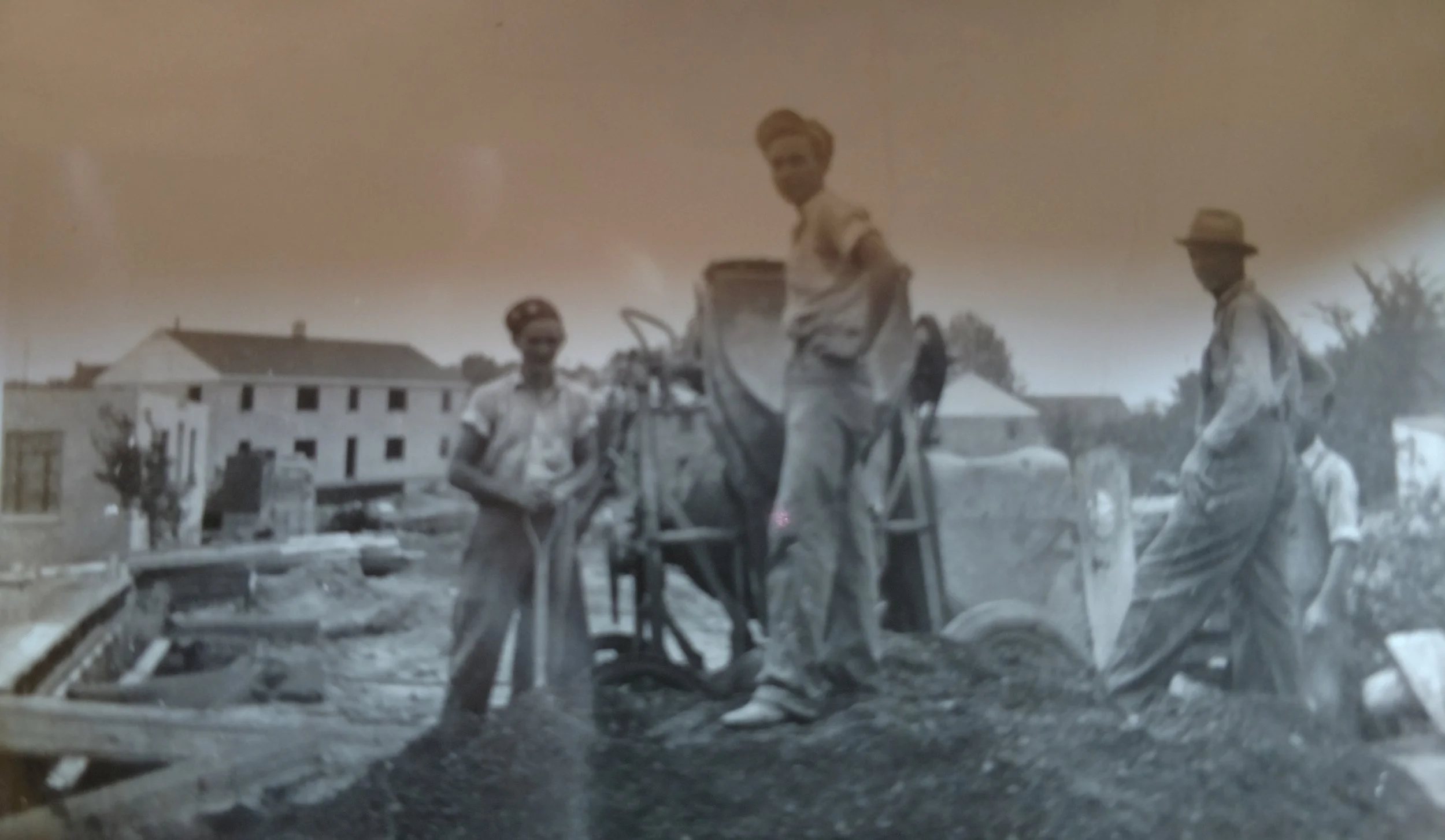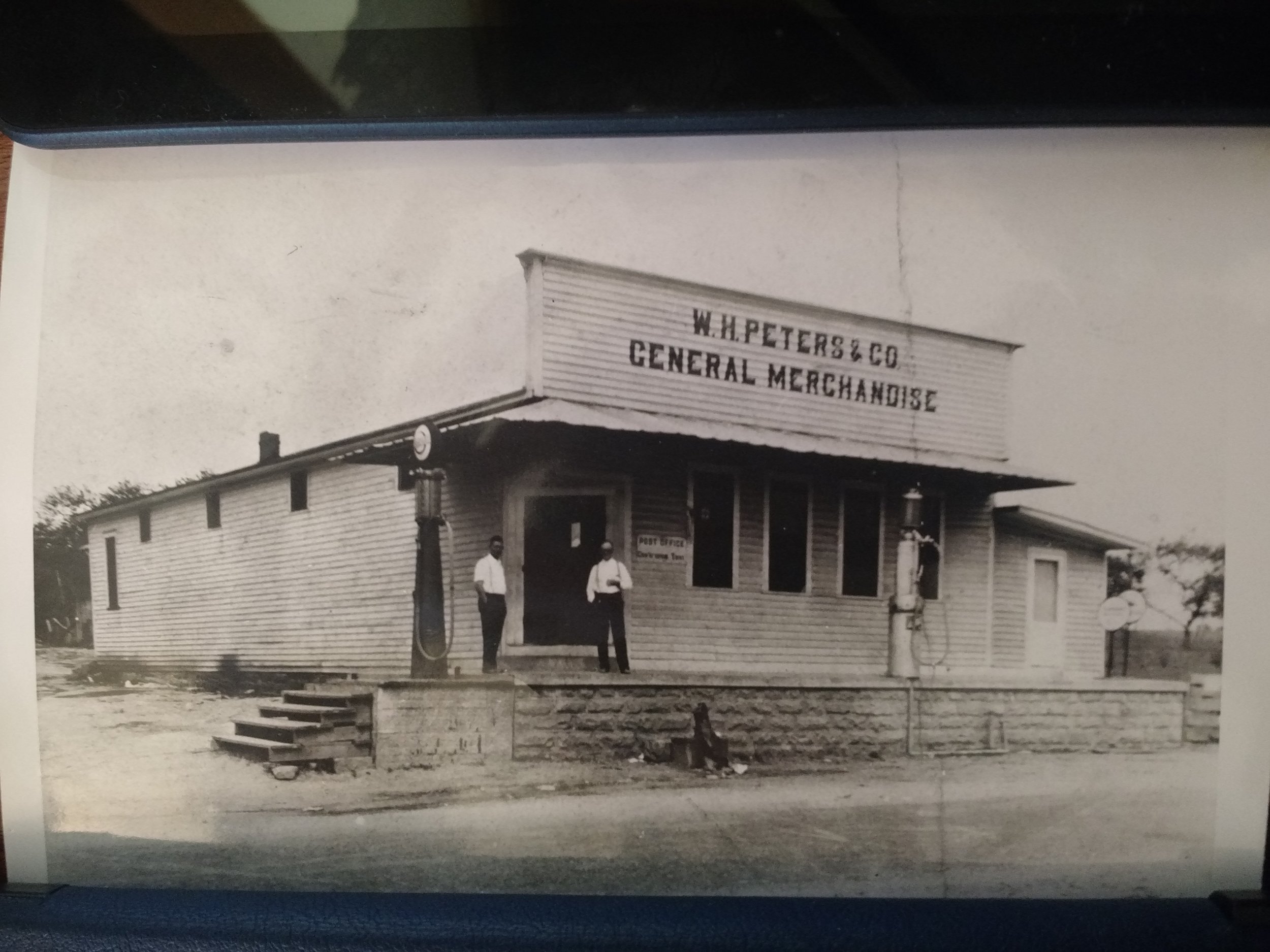It goes without saying that some subjects can be covered with a quick article while others require volumes. The Country Store is certainly a voluminous topic.
I ran upon an article in a 1980’s era copy of The Monterey Dispatch written by Mary Robbins that got me thinking I ought to spend some time – someday – detailing events at the area’s country stores. I want to share parts of her article verbatim with a promise to further explore this topic at a later date.
At one time, every small community in the rural South had its own small grocery store. The store was the center of community activity for six days of the week, relinquishing that honor to the church only on Sunday and during revival meeting time.
Although the store was usually very modest in appearance, it was the product, not the package, that mattered for folks who lived anywhere from five to twenty miles from the nearest town of any size.
Most folks who bought gas, as well as groceries, had it put on their “ticket”. Having money to spend during the week was a luxury belonging to those who were able to go into town, anyway. Every small store, dependent upon its “ticket” customers for survival, kept a record of purchases made during the week and took payment on Saturday. For those customers who received their wages only once a month, the tickets were usually carried till “the first”.
Since the owner of the store and the customer were almost always neighbors or friends, each realizing the extent to which one was dependent upon the other, the arrangement worked well. Payment was made on time, with few exceptions. If there was sickness, or accident, or a spell of bad weather when the customer couldn’t work, he was given extension of payment until things got better. There were exceptions, of course, on both sides. If a customer did run up a bill and, for no apparent reason, wouldn’t pay, his credit was “cut off” and he would stop going by the store. This meant he would have to wait till Saturday or the first of the month to go into town for groceries.
In addition to providing an excellent public forum, the country store offered other enticements to grown ups and children alike. One of these was the cold drink cooler. Usually somewhat battered, its once white enamel yellowed with age and use, it occupied a place of prominence beside the counter. Not only did it hold within its cool, dime depths those wonderfully icy, deliciously “stingy” Coca-Colas and Pepsis that were always referred to generically as “pop”, but ice cream, also… brown cows, popsicles in a rainbow array of colors and flavors… grape, orange, banana, lime. After a hard day’s work in the field or the log woods, stopping by the country store for a pop or an ice cream (or both!) was a treat that few could decline.
The country store offered a variety of items other than food, however. Along its walls were shelves (sometimes rough planks laid on concrete blocks) filled with the staples so necessary to rural families… Mason jars and lids, flashlights, batteries, turpentine, liniment, matches, shoe polish and occasionally, delightful surprises such as comic books (Red Ryder, The Lone Ranger, Bat Man), a picture puzzle, and near Christmas, perhaps even a toy or two. At Christmas, too, the store would receive fresh fruit, such as oranges, tangerines, big red and yellow apples, bananas. And the kind of candy that was a rarity during the rest of the year… chocolate covered cherries, pastel coconut bon-bons. The smell of the place, always interesting, was made almost unbearably fascinating and tantalizing when the fragrances of the fruit and candy mingled with that of the weathered walls and the ever-present barrel of kerosene.
The country store is almost a thing of the past. Replaced by giant supermarkets with gourmet food sections and computerized check-out counters, the small grocery down the road a ways is fast disappearing… along with the two-room school and Fifth Sunday singings.
Just once, I would like to walk down that dusty country road again, to satisfy my thirst with a Coke from that old cooler and listen to the ebb and flow of conversation above my head...”If we don’t get some rain, soon, why the gardens are goin’ to all dry up.” “Folks over at the county seat are sayin’ Jim don’t have a chance against that lawyer fella in the County Judge’s race…” “Times sure ain’t what they used to be…”
I’d love to hear your memories of the country store! Please click on comments below and share.






